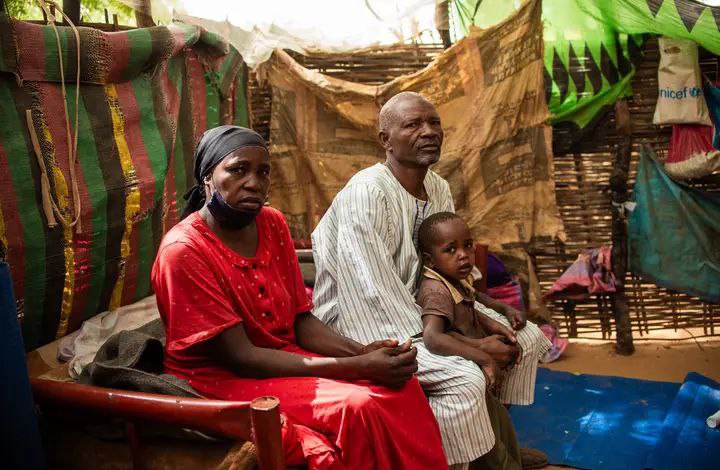Throughout the months of armed conflict in Sudan, the recruitment of children has emerged as one of the most alarming violations threatening an entire generation. In various regions — especially those along frontlines and the outskirts of major cities — dozens of boys under 18 have been used in military and logistical roles, ranging from guarding checkpoints and carrying supplies to direct participation in combat.
According to Hassan Abdel Hakim, head of the Prisoners Affairs Office in the Omdurman Military Zone, “The Sudanese army has handed over 30 children who were forcibly recruited by the Rapid Support Forces (RSF) to the International Committee of the Red Cross (ICRC).”
He added that this step came as part of efforts to protect minors and remove them from conflict zones, noting that “another 18 children were recently handed over to the Ministry of Social Welfare for rehabilitation and reintegration into society, in line with directives from the Armed Forces’ High Command.”
Abdel Hakim stressed that “these numbers represent only a small portion of the actual cases, and significant challenges remain in detecting and preventing the forced recruitment of children, particularly in hard-to-reach areas due to insecurity.”
Exploiting Poverty
These developments indicate a widening scope of the phenomenon, confirmed by international organizations working in child protection. According to Mohamed Al-Amin, an officer at UNICEF’s Child Protection Office in Sudan, “The phenomenon has been growing since the onset of the armed conflict, with increasing cases of children as young as 12 being involved in military or paramilitary tasks.”
He explained, “Verified information from field partners indicates that these children have been used to guard checkpoints, transport supplies, and sometimes take part directly in combat operations.”
Al-Amin noted that “recruitment methods vary depending on location and circumstances. Some groups exploit poverty and dire living conditions, luring boys with promises of money or food, while others offer protection from danger or revenge. There are also cases of abduction and direct coercion of families to force their children into this work.”
He added that rehabilitation efforts begin as soon as the children are freed or leave conflict areas, with UNICEF, the Ministry of Social Welfare, and the ICRC providing psychological and social support and working to reintegrate them into their communities — or find safe alternatives when that’s not possible. “But this process is complex and lengthy,” he said, “due to the deep psychological trauma, loss of education opportunities, and the ongoing fighting in some areas that limits access to all affected children.”
A Mother’s Anguish
Fatima, the mother of a 16-year-old boy who was forcibly recruited, recounted: “My son was in his second year of high school. Every morning he left for school at seven, carrying his books and breakfast. That day was no different. But he never came back.”
She continued, “His phone was off. We asked neighbors and classmates, but no one knew anything. Two days later, a neighbor told us he saw him at a checkpoint on the city’s outskirts wearing military clothes and carrying a walkie-talkie. I couldn’t believe it. I went there with his older brother, and we saw him standing among armed men. When we tried to approach, one of them stopped us and said, ‘He’s on duty now. Leave.’ They didn’t even let us talk to him.”
Weeks passed with no news until an aid organization informed the family that he had been transferred to a remote area, working in supply transport and checkpoint security. “I feared they would send him to fight,” she said. “I couldn’t sleep for nights, terrified of a knock on the door bringing news of his death.”
“Four months later, he was returned with a group of other children,” Fatima said. “He was silent, didn’t laugh, avoided eye contact, and sometimes screamed in his sleep. He didn’t tell us much, only that he wanted to come home — he never wanted to be there.”
Limited Cases?
Strategic analyst and conflict researcher Tayeb Abdelrahman argued that claims of widespread child recruitment in Sudan are exaggerated. “We acknowledge isolated cases,” he said, “but portraying it as a general phenomenon does not accurately reflect reality. In most areas, local communities are aware and maintain social safeguards that prevent minors from being drawn into combat.”
He added, “Some circulated images and reports may involve children in non-combat roles, such as carrying supplies or assisting at temporary civilian service points — which, while unacceptable, do not amount to full military recruitment.”
Abdelrahman stressed that “the picture is not entirely bleak — there are ongoing efforts by the army and civil society to keep children out of armed conflict.”
Nightmares and Isolation
According to Dr. Ahmed Galal, a psychiatrist specializing in trauma who has treated children returning from forced recruitment, *“What we see in these children is not mere sadness or fear — it’s deep psychological trauma that can last
